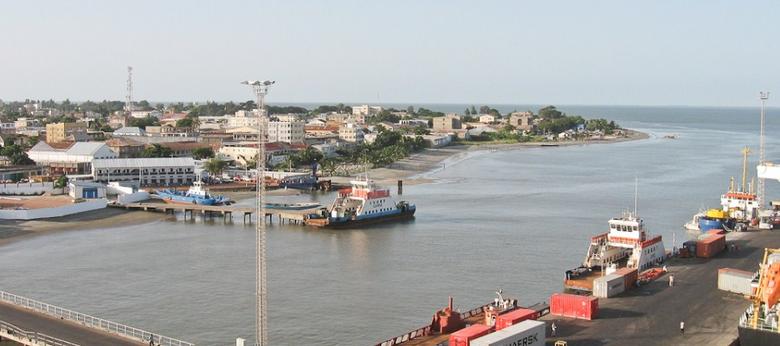Ministers from The Gambia, Guinea Bissau, Mauritania and Senegal have agreed to establish a legal and institutional framework for cooperation on the Senegal-Mauritanian Aquifer Basin (SMAB), a shared aquifer basin (groundwater reserve) on which 80% of their populations depend. In a context of rising water stress, this resource is strategic for the region’s adaptation to climate change, as it is less vulnerable than surface water. Its concerted management will contribute to reinforce peace among the populations of the four countries.
A declaration signed today in Geneva during the 9th session of the Meeting of Parties to the UNECE Water Convention outlines a shared commitment to set up a permanent mechanism for the concerted management of the aquifer basin. “The destinies of our countries are linked by the water resource crossing our territories and uniting our populations”, stressed the four Ministers, gathered for the first time to discuss this key issue. This will be the first such mechanism in West Africa, and paves the way for strengthened collaboration on shared groundwater resources worldwide.
The SMAB extends over approximately 1,300 km with a surface area of 331,450 km2 and an estimated population of over 20 million inhabitants. Cooperation on this vital water resource is essential because the aquifer basin is under increasing pressure from population growth and agriculture. Ensuring its sustainable management is therefore crucial for the stability of the region and its water security as major cities, rural communities and economic sectors rely on this strategic resource. The declaration further recognises the importance of ensuring access for all to clean water and sanitation in light of the COVID-19 pandemic and underscores the key role of such services for the empowerment of women.
UNECE, through the Secretariat of the Water Convention, in partnership with the Geneva Water Hub, a centre specialised in hydrodiplomacy attached to the University of Geneva, and the UNESCO International Groundwater Resources Assessment Centre has been supporting the development of technical and political cooperation on the aquifer basin since 2019, with financial support from the European Union and the Swiss Agency for Cooperation. The dialogue has been organised with the set up in 2020 of a Regional Working Group for Transboundary Cooperation on the SMAB, comprising the four States, together with the Organisation for the Development of the Gambia River (OMVG) and the Organisation for the Development of the Senegal River (OMVS). This platform enabled the four states to agree upon a common vision towards transboundary cooperation, operationalised through a regional project, that has been validated by the four Ministers in charge of water during their meeting.
The strengthened joint management of the aquifer basin will build on pioneering cooperation on the region’s surface transboundary waters through OMVG and OMVS, with the support of international partners. The two transboundary basin organisations will provide the Secretariat for the Regional Working Group which will elaborate the future intergovernmental mechanism for concerted management of the SMAB.
Only a handful of transboundary groundwater resources worldwide are covered by official cooperation agreements, with even fewer being operational, despite their crucial role in providing water resources. The second report on Sustainable Development Goals (SDGs) indicator 6.5.2 which measures transboundary water cooperation, published in August by UNECE and UNESCO on behalf of UN-Water, highlighted that while 153 countries share transboundary rivers, lakes and aquifers, only 24 countries report having operational arrangements in place for all their transboundary waters, contrasting with the SDGs’ vision to ensure that all these waters are covered by operational arrangements by 2030. The rate of progress therefore needs to quadruple.
The declaration therefore calls on all countries to accede to the United Nations Water Convention and Watercourses Convention, recognizing these as “fundamental tools for the promotion of sustainable and non-conflictual management of transboundary waters”. Senegal and Guinea Bissau are among the four African countries that have joined the Water Convention in the last few years, and The Gambia and Mauritania are among several additional countries taking steps towards acceding.





